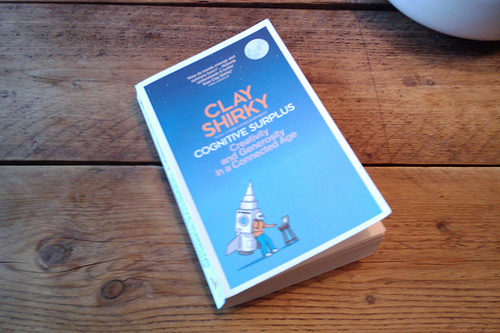
TV killed the creative potential, almost
As we have gotten more and more free time over the past century, courtesy of the 40 hour work-week, we created a surplus of human potential and creativity. This surplus remained more or less invisible because we spent most of that free time watching TV, religiously. And somehow, we thought that was the way it was supposed to be. We forgot about the stuff we did before TV: social interactions in clubs, sports, hobbies, etc.
Frozen accidents do not stay frozen forever
Internet and Social Media changed all that. We now know that we do not have to live in a world where a small group of professionals decide what we will watch, thereby ignoring most of our individual needs and interests. The TV construct apparently was a frozen accident, something that we came to consider inevitable
Instead, Social Media brought us ways te connect, share and create in a truly interactive way, liberating us from the inbalance of the traditional Media world. We can now once again create, interact and find uses for our cognitive surplus.
Watch Clay Shirky talk about Cognitive Surplus:
More links:
Cognitive Surplus on Wikipedia
[amazon_link id=”1846142180″ target=”_blank” ]Cognitive Surpluson Amazon.com[/amazon_link]
